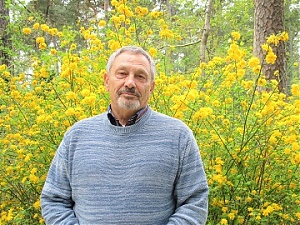Editor's note
International Internet Magazine. Baltic States news & analytics
Friday, 13.02.2026, 15:25
Science policy: external and internal agendas
 Print version
Print version |
|---|
The Baltic States gain a lot and in many ways from the EU
science and research funding. The issue is becoming even more important during
this month, as vital political contest over Horizon Europe, the 2021-2027
program will be discussed over the EU science’s future.
As the preparations are moving ahead, the “battle-lines”
have become clear among the member states’ research communities, ministries and
academies. These are controversies among: a) small and large recipients of the EU
funds, e.g. agro-sector and regions; b) between among universities and big
companies with strategic research agendas; c) between eastern and western
Europe; d) between natural, technical and social sciences.
The Academies in the Baltic States shall take the lead in
the internal and external discussions.
Education and knowledge are integral parts of all national,
regional and global socio-economic issues, as an important “instrument” in
resolving them; however, the question remains: How efficient are these instruments
and efforts?
It is well-known that science/research activities in the
Baltic States are financing, almost entirely, from the EU funds. At the end of
September, the Commission DG Research will debate wider European research and innovation issues (R&I) for
the next seven years, as well as the appropriate strategies in the new Horizon Europe with analysing
lessons learned from a previous Horizon 2020.
More importantly,
it will draft future EU high policy’s recommendations for the EU
institutions (mainly for the incoming Parliament and Commission) on
what the Horizon Europe might realistically be expected to deliver by 2030
to the member states.
Science and knowledge: external plus internal
New researches underline the role of negotiating in
sciences’ practical implementation for resolving national problems (called
knowledge diplomacy). Such issues as the role of international/European higher
education, research and innovation in fruitful cooperation among the Baltic
States is included.
These issues shall be seen through the challenges of the 4th
industrial revolution, which provide for new approaches for internal to
exploring the science-innovation relationship between and among the Baltic
States.
It is important to understand the “knowledge policy”
content’s role as a comprehensive impetus into re-assessing traditional higher
education activities, in line with the national strategic development agenda.
National ministries in the Baltics, first of all those for education and
science, shall develop new approaches and concepts leading to perfect match
between the research and national goals. That presupposes an adequate focusing on
a broader role of science, technology and innovation including numerous sectors
in politics, economics, social and natural sciences.
Commercialization of higher education, science and
innovation can provide a certain threat to “free science” model; but this can be
seen as a “by-product” of innovative activities.
Some researchers underline the role of global talents in the knowledge economy
and lobbying activities for more national and European funding in R&D.
Reference to:
Knight J. Clarifying
misconceptions about knowledge diplomacy, -University World News, September 2019, Issue nr 564.
EU science strategy and the Baltics
The increasing importance of “science diplomacy” becomes important in the present discussion of the EU science budget for the next multi-annual programming. This is an issue of great importance for the Baltic States, if science/innovation is broadly interpreted to mean knowledge for the national perspective development. But then again: first national priorities, then the rest of the close relationships between science and research.
Traditionally, however, science diplomacy has been seen in terms of the hard
sciences. More recently it has been placed within the broader framework of
science, technology and innovation. There is no doubt that this reflects the
centrality of science and technology in today’s knowledge economy.
More on the role of science in national development:
Sparitis O. & Eteris E. Modern European science policy: challenges and opportunities for
Latvian perspective growth. Latvian
Academy of Sciences’ publication series: Latvia in Europe and the World. -SIA
Medicinas apgards publish. - Riga, 2019. -214 pp. Review of the book in: Latvian
science and research policy through a perspective vision. By Baiba Rivzha,
LZA’s Academician, in: http://www.baltic-course.com/eng/book_review/?doc=150928&ins_print;
Of course, not all the science/innovation/research issues
will be settled down this September in Brussels: the discussions and fighting
will proceed up to autumn 2020. Though, some preliminary “road-maps” have been
already drafted, e.g. an unofficial “guide” based on views from
“Science/Business” online network service.
Reference: Horizon
Europe: The Essential Guide, September 2018, in:
https://sciencebusiness.net/report/horizon-europe-essential-guide
Some states around the Baltic Sea region are trying to grasp
the momentum and reform education, science and innovation issues. Thus, Polish government
provides an example of moving from a notorious “moderate” innovator on the EU
level up to the top. The government has created a network of applied research
institutes with a dedicated agency for attracting home expat researchers. The
process of reforming the higher education system has become so fundamental
(with reorganization of 38 applied research institutes under the umbrella of
the newly-formed Lukasiewicz Research Network),
that it is even called a “constitution for science” in Polish political
lexicon. The utmost idea is to strive to enter the EU’s innovation top league,
after being consistently labeled as a ‘moderate’ innovator by the European
Commission.
Reference to: https://sciencebusiness.net/news/poland-reforms-innovation-system-bid-emulate-success-finlands-vtt-and-germanys-fraunhofer











